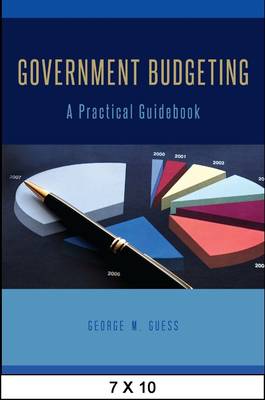
- Afhalen na 1 uur in een winkel met voorraad
- Gratis thuislevering in België vanaf € 30
- Ruim aanbod met 7 miljoen producten
- Afhalen na 1 uur in een winkel met voorraad
- Gratis thuislevering in België vanaf € 30
- Ruim aanbod met 7 miljoen producten
Omschrijving
Practitioner-oriented sampling of the major tools used to deal with current public-sector fiscal issues.
Directed at state and local financial managers, Government Budgeting presents, in a short and succinct manner, a sampling of the major tools used to deal with current fiscal problems. George M. Guess provides examples from a number of states and localities and explains how to use them in diverse situations. At the end of each chapter, cases, exercises and/or questions are provided for further study. The chapters cover the major topics needed by today's practitioners: core concepts and definitions of budgeting and financial management; how to analyze the revenue budget and evaluate revenue sources; how one might plan expenditures and prepare an annual request; how capital projects should (and should not) be planned, analyzed, compared, placed into a capital improvements program, and financed; and the critical topic of budget implementation. Without claiming that practical tools can resolve every problem, the book suggests that if all stakeholders used such analytic tools the outcomes might be better for the general welfare.
Specificaties
Betrokkenen
- Auteur(s):
- Uitgeverij:
Inhoud
- Aantal bladzijden:
- 230
- Taal:
- Engels
Eigenschappen
- Productcode (EAN):
- 9781438456669
- Verschijningsdatum:
- 1/06/2015
- Uitvoering:
- Paperback
- Formaat:
- Trade paperback (VS)
- Afmetingen:
- 178 mm x 251 mm
- Gewicht:
- 408 g

Alleen bij Standaard Boekhandel
Beoordelingen
We publiceren alleen reviews die voldoen aan de voorwaarden voor reviews. Bekijk onze voorwaarden voor reviews.











